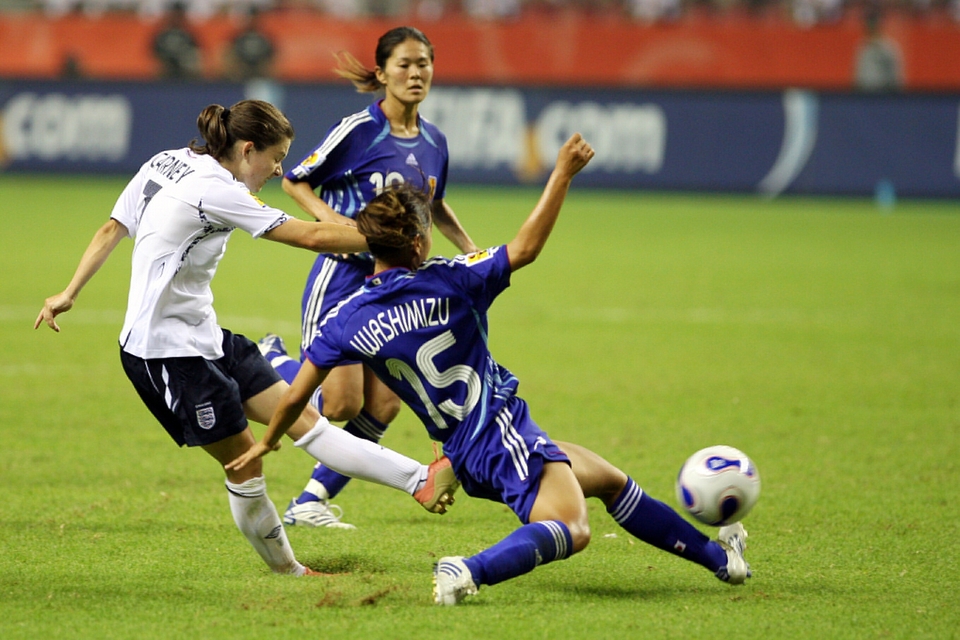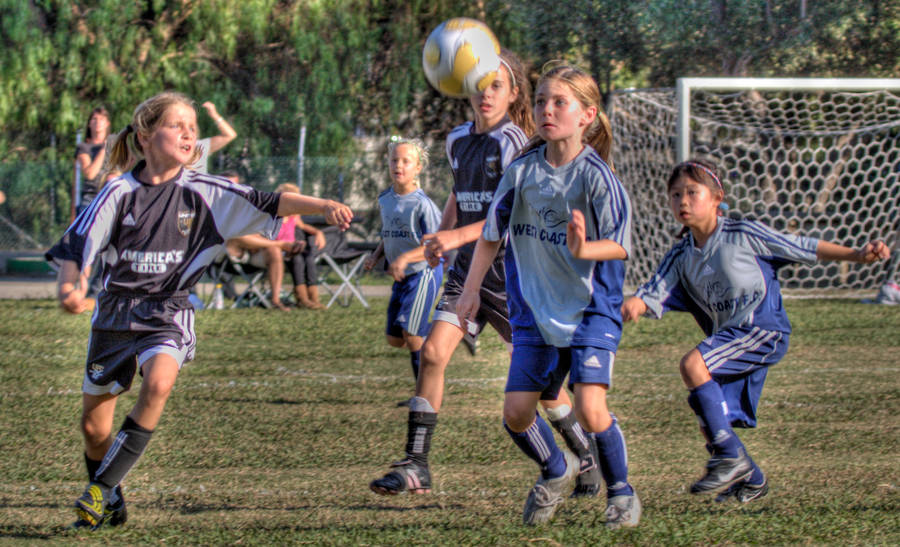
Karen Carney’s Ambitious Plans to Improve Women's Football Encouraging girls to play more football in the UK extends beyond merely promoting our sport.
It’s a catalyst for empowerment, improving physical well-being, confidence, teamwork, mental resilience, and a sense of belonging.
As girls lace up their boots and take to the pitch, they are not just playing a game, they’re stepping onto a platform that enriches their lives and equipping themselves with skills to thrive in a diverse and challenging world.
In a welcome and significant stride towards advancing women's football, the UK government has recently pledged its support for all recommendations outlined in the review led by former England Lioness midfielder Karen Carney.
The comprehensive report, published in July, advocates for the full professionalisation of the top two women's tiers in England and proposes a dedicated broadcast slot for improved coverage.
Culture Secretary Lucy Frazer is encouraging the Football Association and stakeholders to "set a new standard for women's sport," deeming this a "defining moment" for women's football.
Lucy Frazer has expressed confidence that ongoing efforts can propel the women's game to new heights, emphasising the need to establish a new benchmark for women's sport overall.
The government's response underscores that the recommendations serve as the "right blueprint for the future of women's football," signalling a commitment to translating them into reality and holding the football industry to account for their success.
Other key recommendations from the report included:
World-leading standards for players, fans, staff, and everyone involved in the women's game.
Restoration of the talent pathway to foster future generations of players, specifically the Lionesses.
Professionalisation across the top two tiers to attract and develop the world's best players.
Addressing the lack of diversity on and off the pitch within the women's game.
Collaboration between governing bodies and broadcasters to establish a dedicated time slot.
Implementation of measures to support fans.
Equal access to school sports for girls.
Increased investment in grassroots facilities and improved access for females.
Karen Carney, the former 144 cap England international, has set out a vision for domestic women's football evolving into a "billion-pound industry" within a decade.

The government's response coincides with Women's Super League and Women's Championship clubs agreeing to form a clubowned organisation to oversee women's professional league football in England from the 2024-25 season, to take over from the Football Association.
Frazer emphasises the need to bridge the "massive disparity" in pay between the men's and women's games, highlighting the importance of making the women's game more commercially viable.
The government plans to establish an implementation group and a separate board of women's sports to drive the Carney review plans, highlighting themes, sharing best practices, conducting research, and accelerating growth.
Carney says she is pleased at the government's full backing and their renewed commitment to developing women's football in the UK.
The FA also welcomes the government's support, acknowledging the pivotal moment in women's football's development and has expressed readiness for the continued success of the game.
A statistical overview demonstrates just how strong the women’s game is becoming.
Last year was a ground breaking one for women's football, the Lionesses triumphed in Euro 2022, captivating sellout crowds at Wembley and making history by reaching the World Cup Final against Spain just 13 months later.
Despite the final defeat, the magnitude of their accomplishments became evident, marking a seismic shift in the landscape of women's football.
It's clear that the women's game is experiencing unprecedented growth and recognition.
The UK government's support for women's football, coupled with the Lionesses' success, has generated significant momentum.
A comprehensive survey shows that just under a quarter of girls (23.3%) have played on a football team at some point in their lives which is a substantial increase although this figure is less than half of the equivalent for boys, with 60.6% having played on a football team.
Approximately 1 in 7 women is currently involved in either playing or watching football and 1 in 20 women in the UK took up football for the first time as adults.
As of December 2022, 777,000 girls play football in England, marking an increase from 669,000 four years earlier.
The survey of 2,000 adults in the UK in August 2023 revealed interesting insights into women's football participation:
8.33% played as a child and continue to play as an adult.
9.29% played as a child but no longer play into adulthood.
76.57% have never played on a football team.
Men remain over two and a half times likelier to have played football than women: Men: 60.60% Women: 23.30%
A Sport England Active Sports report in December 2022 indicates that 777,000 girls play football in a formal setting.
This represents an increase of over 100,000 from the same survey in 2018.
The Women’s Super League saw a 200% increase in attendance after England's Euro 2022 triumph.
The record attendance for the opening weekend of the 2023/24 WSL season was 54,115 at the Arsenal vs Liverpool match.
Average attendances for the 2022/23 season varied, with Arsenal leading at 19,826, but averages can be skewed for teams playing in their main club stadiums.
These statistics underscore the remarkable growth and increased interest in women's football in the UK.
As attendance figures surge, and participation continues to rise, the women's game is on an upward trajectory, setting the stage for an exciting future and while football has long been perceived as a male-dominated sport there is no doubt a paradigm shift is underway.
Increased participation in women's football in the UK is undeniably positive for numerous well established reasons.
It promotes gender equality by offering women and girls the same opportunities as their male counterparts to engage and excel within the game harnessing a sense of empowerment, confidence, and camaraderie, that contributes to a more inclusive and diverse sporting landscape.
Additionally, heightened involvement in women's football has the potential to challenge and break down societal stereotypes, inspiring young girls to pursue their sporting aspirations and demonstrating that success in sports is not confined by gender.
Increased government backing for the game further amplifies these positive impacts, as it provides essential financial support for infrastructure development, coaching, and grassroots initiatives.
This commitment signals a recognition of the societal benefits derived from a thriving women's game, supporting a culture where female athletes are valued and supported on a national scale.
Ultimately, the combination of increased participation and government support contributes to the overall enrichment of the UK's sporting landscape and reinforces the importance of equality as a thread running through all of society.

















